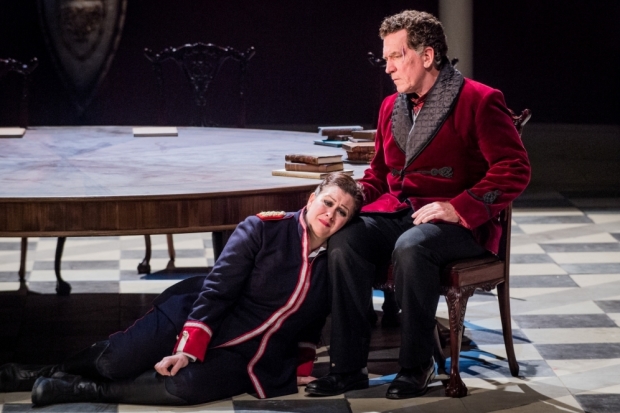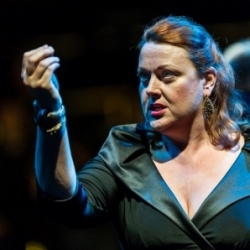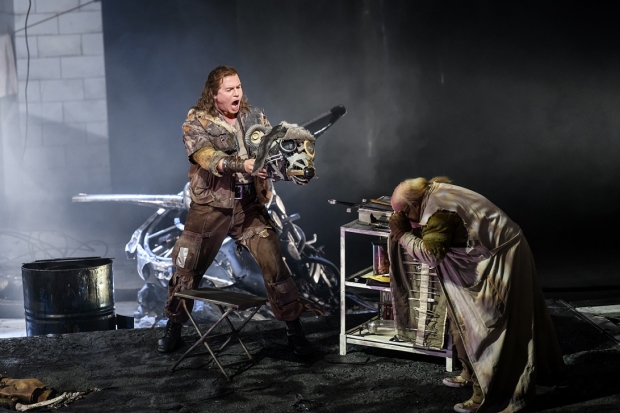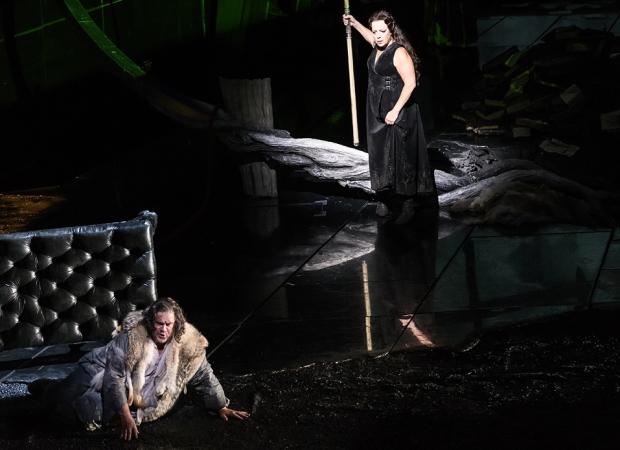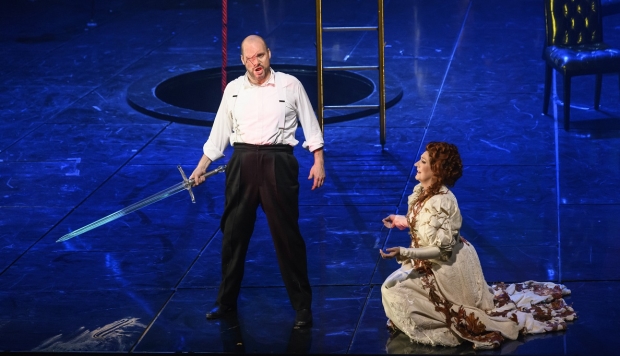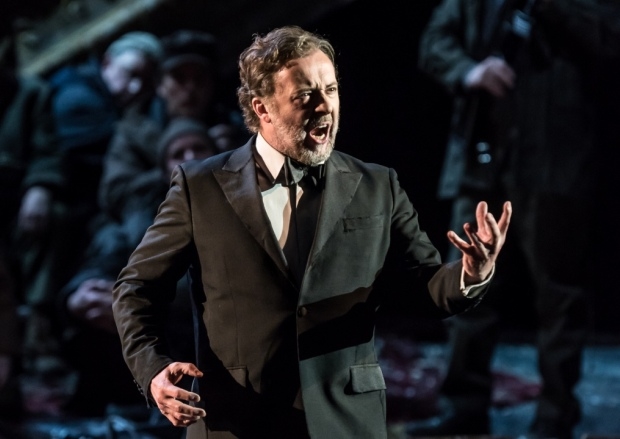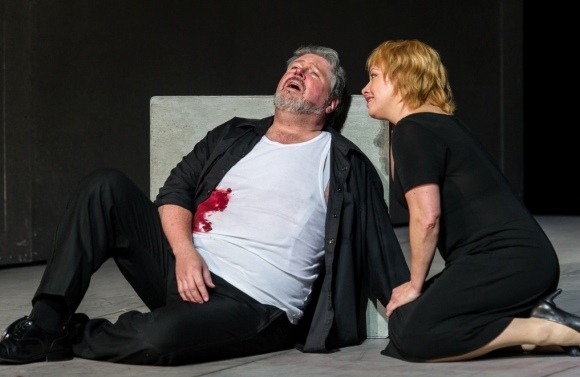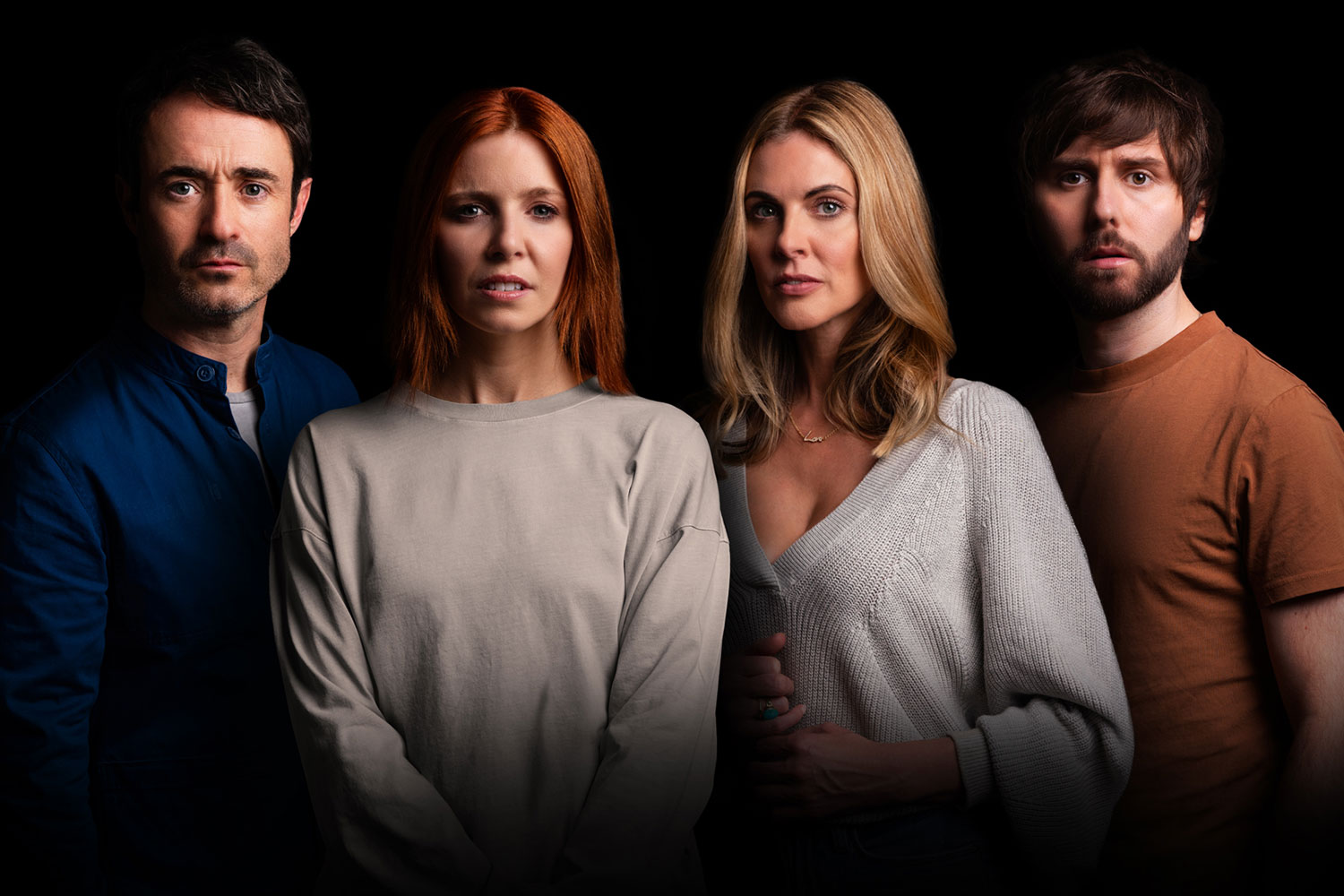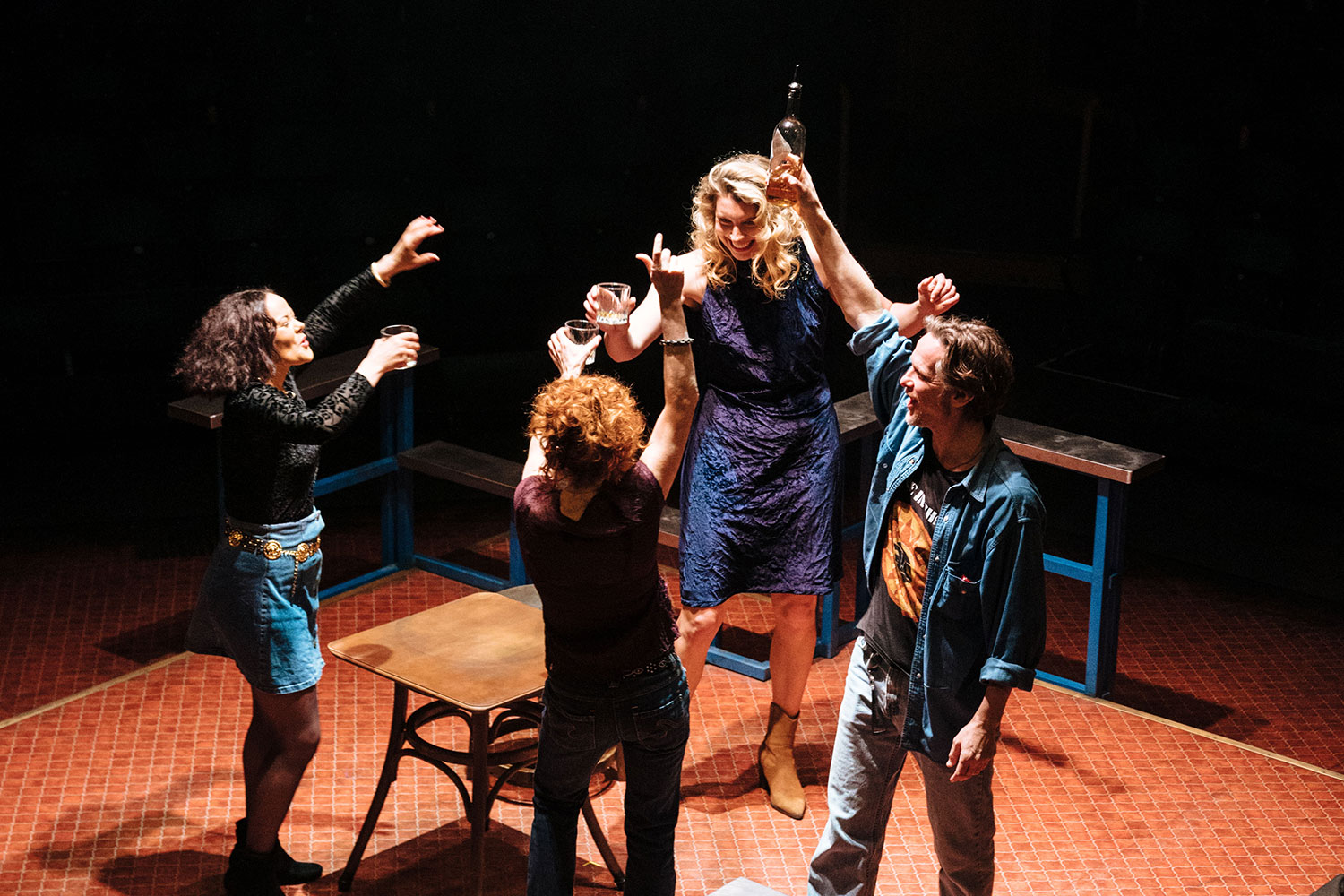Review: Götterdämmerung (Royal Opera House)
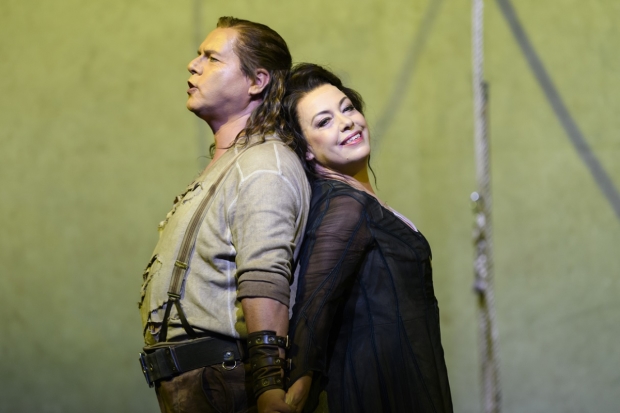
© Bill Cooper
In the beginning there was darkness. At the end, obfuscation. The Royal Opera's sporadically ecstatic revival of Der Ring des Nibelungen completed its first cycle on Monday night a mere 21 hours before the second one begins. So the wheel turns.
Darkness is everywhere in Wagner's music, its icy fingers reach up from the depths of the Rhine and shroud every deed, whether good or bad, in tenebrous murk. Small wonder nobody turns out to be especially noble in the Norse-inspired epic. Even the gods bicker self-destructively like a dysfunctional party of government. And the saga's much-heralded hero, Siegfried, is little better than the rest. An ironic interpretation of heroism, surely, when it's shouldered by a naïve lad who's devoid of self-awareness and susceptible to anyone's guile. He dies a victim's death, not a hero's.
And the obfuscation? Take a bow, Keith Warner, a director of proficient technical command and sound stagecraft (his Vanessa for Glyndebourne was a triumph) but someone who grapples with Wagner's epic by pursuing an interior agenda at the expense of clear communication. It's telling that the third opera, Siegfried, succeeded because he kept things simple, but for Götterdämmerung he's back to footling – so much so that if you stopped to think ‘What's all that about?' you'd never focus on the music. As for his closing image, it is genuinely indecipherable and therefore meaningless.
This mammoth final opera is as formidably cast as its predecessors, with majestic assumptions of the central duo by Nina Stemme (Brünnhilde) and Stefan Vinke (Siegfried). The Swedish soprano's extraordinary rendition of the 20-minute farewell to her lover and to life – the celebrated Immolation scene – was tinged by only the faintest marks of tiredness, something that's forgivable after such a vast traversal and also consonant with her character's emotional state. Stemme, who dominates all three of the main operas (Brünnhilde doesn't appear in Das Rheingold), is the superglue that holds this Ring together. She is a blazing star who never ceases to amaze with her expressive acting, vocal power and beauty of tone.
Vinke was as commanding as he had been in the opera that bears his character's name, while his new nemesis, Alberich's scheming son Hagen, found a chilling interpreter in the pugilistic form of Stephen Milling. The treacle-dark Danish bass achieves much of his menace through stillness. Baritone Markus Butter was not the Gunther of one's dreams but Emily Magee, far more convincing here than in Die Walküre (where she sang Sieglinde), was vocally ideal as his conflicted sister Gutrune.
The opera's two trios, Norns and Rhinemaidens, were pretty much flawless. Contralto Claudia Huckle sang magically as the First Norn while Rachael Lloyd did a fearless last-minute jump-in as Wellgunde, but in truth all six did heroic work. And a show-stealing cameo from Scottish mezzo Karen Cargill as Brünnhilde's sister, Waltraute, was so spectacularly well sung it would earn a paragraph to itself if space allowed.
All this talk of heroes yet still some risk slipping through the net. House director Amy Lane has done a pitch-perfect job of reviving Warner's intricacies and on this showing may be an inspired choice to stage the new Longborough Ring cycle beginning next year. Wolfgang Göbbel's lighting harmonises wonderfully well with the settings by Stefanos Lazaridis and includes at least one inspiration, the shadow-rapprochement of Siegfried and Brünnhilde in Siegfried, that's touched with genius. And Antonio Pappano completes the first of his four bunched-up cycles – that's 16 performances in little over a month – on a high with this brilliantly conducted finale. Even though the orchestra had its glitches the boss-man's baton remained steadfast. Bravo.



